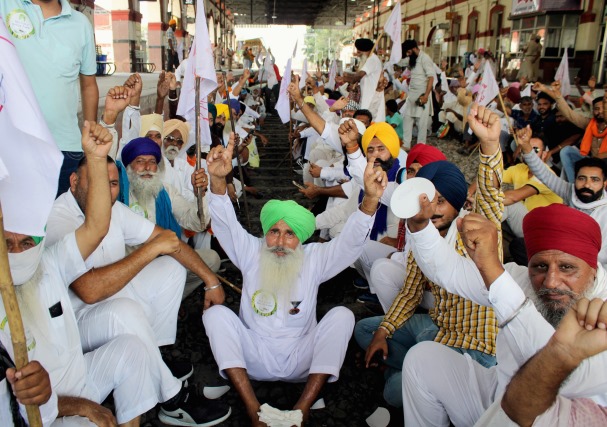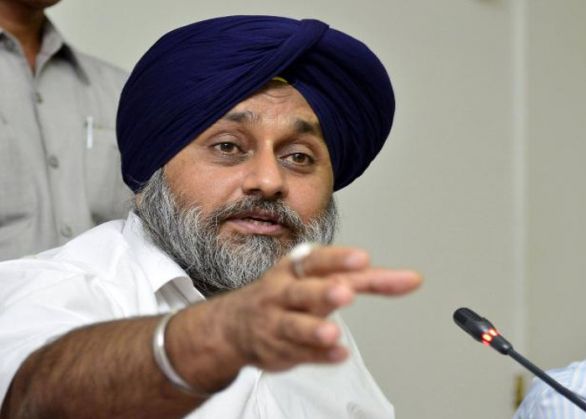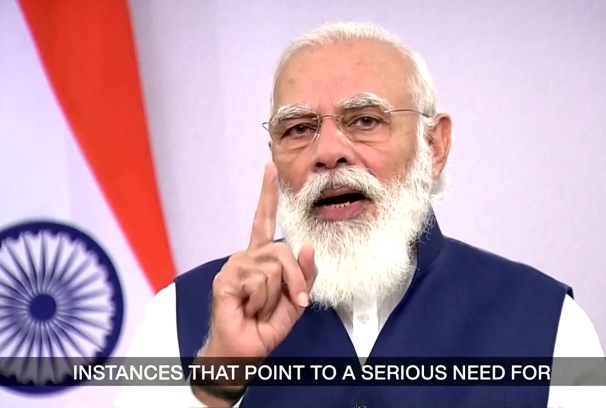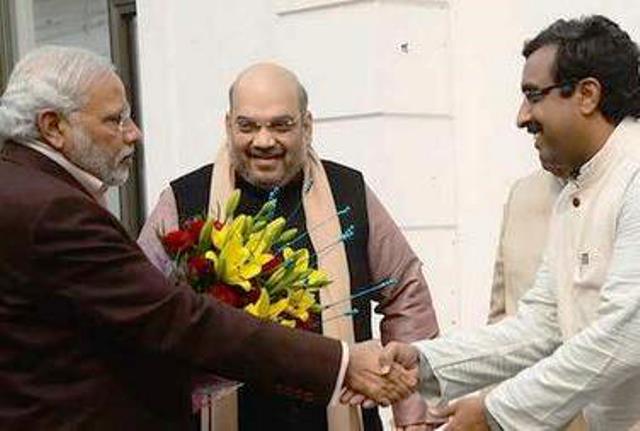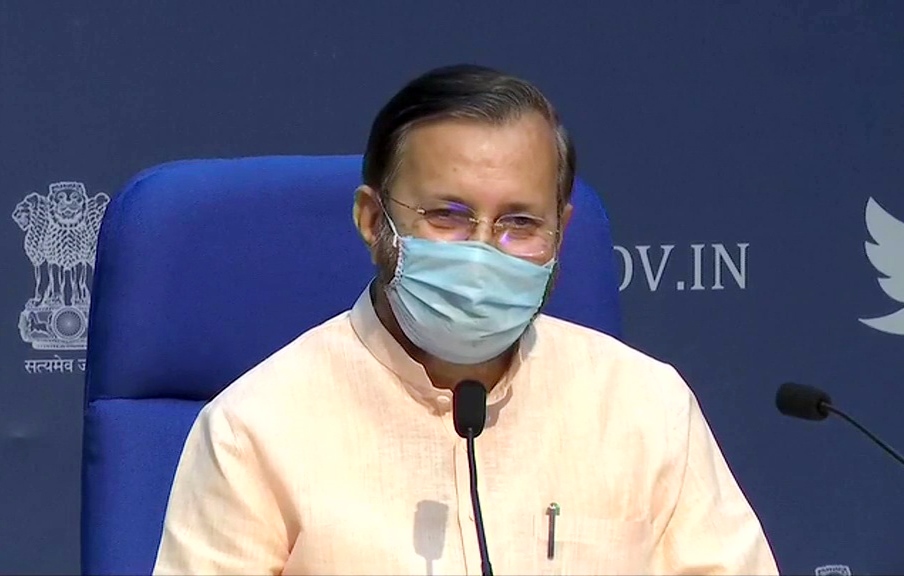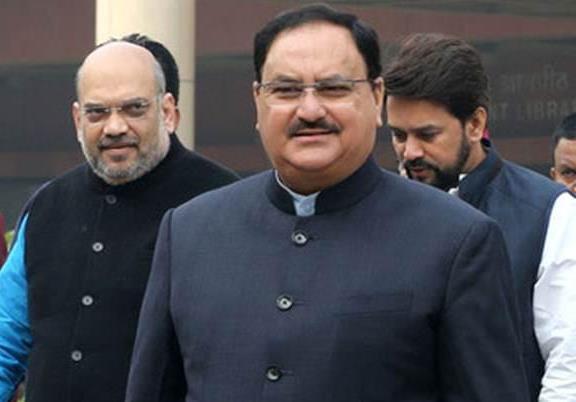On Friday, as the sun set in large parts of India, the day-long farmers’ protests and Bharat Bandh passed off peacefully with no police violence, lathi-charge or teargas reported, no mass arrests or detentions, and no forcible eviction of farmers, many of whom had blocked highways and roads, and railway tracks and trains, albeit peacefully, and in a collective, resolute show of non-violence. Even while the so-called Godi media chose to ignore it, social media was replete with images and commentaries of the mass protests all over the country; significantly in the South, in cities like Hyderabad and Bangalore, where thousands thronged the streets in militant non-violent protests against three agriculture-related bills.
The Centre in the recently-concluded Monsoon Session of Parliament passed three bills rather arbitrarily: the Farmers Produce Trade and Commerce (Promotion and Facilitation) Bill, 2020; the Farmers (Empowerment and Protection) Agreement on Price Assurance and Farm Services Bill, 2020 and; he Essential Commodities (Amendment) Bill, 2020.
Farmers believe these bills will have long-lasting and negative effects on farming as they will give a free run to big industrialists, global sharks, cartels and multinationals. Powerful hoarders will have a field day, the minimum support price of farm produce will be manipulated pushing the farmers to abject starvation, debt and total dependence, and all kinds of dubious and sleazy market forces will be allowed to capture Indian agriculture.
The
belligerent BJP-led central government, who chose to care little for dialogue
or consensus in pushing the three bills, and which was so sure of its absolute
and one-dimensional power, now not only finds itself on a sticky wicket – it is
clearly on the back foot.
Indeed, the street has once again become a metaphor for non-violent protests, for the first time since the lockdown, which was preceded by massive peaceful protests against the Citizenship Amendment Act and Citizen Registry (NRC) that rocked the nation with demonstrations and prolonged sit-ins across small towns and big cities for more than three months during winter last year and thereafter. Surely, after the massive Shaheen Bagh protests, which were replicated across the nation, and with the farmers coming on the streets physically, breaking all forms of collective phobia or the fear of a Police State, the use of the pandemic to crush democratic dissent can no more be used. The tide is rising again, this time with farmers in the lead.
On
the first day of protests, the farmers’ life began earlier than most people in
India, much before sunrise. There was fear that there could be a crackdown,
especially in the states ruled by the BJP. Even now, there have been
apprehensions that the central government, which has been rather
uncompromising, might actually choose to crack down using the pandemic as an
excuse, as it has done with peaceful dissenters against the CAA, which the
protesters have condemned as discriminatory, communal and against the basic
tenets of the secular Indian Constitution.
By
morning most of Punjab was up in arms. Indeed, what found sharp resonance in
Parliament earlier, especially in the Rajya Sabha, where the three bills were
pushed by a voice vote in the din (with Rajya Sabha TV volume muted) and a
division of vote was not allowed, and which the Opposition called as the murder
of democracy, became resonant yet again on the streets all over India. Trains and
highways were blocked but without any untoward incident.
At
the Haryana-Punjab border, tractors blocked the roads even as ambulances and
locals were allowed to move, and youngsters in thousands assembled in
solidarity with the farmers. Punjab being the epicenter, the strong protests
were spread across the state, with the farmers refusing to budge till the three
bills are taken back, lock, stock and barrel, and the minimum support prices
for farm produce legalized.
At
the massive Nabha protests, again on railway tracks, men and women marched from
long distances, to join in solidarity. A woman told BBC News (Hindi), “Narendra
Modi tells his Mann ki Baat. So what about our Mann ki Baat? Another woman
said, “The movement will be sharpened if the bills are not withdrawn. They are
liars.”
The
upsurge spread across the country, with thousands of rallies and dharnas. Farmers, workers, locals, trade
unions, civil society organisations and students came out in hundreds of
rallies in small towns and cities, in every state, holding red, green and other
flags, marching in a disciplined and peaceful manner. ‘Standwithfarmers’ kept
trending on social media. In Kolkata, the students of Jadavpur University
marched through the streets singing songs in support of the farmers. There was
overwhelming support for the agitation all over Bengal with the Left, the
Congress and the ruling Trinamool Congress coming out in support.
The
CPI-ML (Liberation), which is strong among the poor peasantry in Bihar, led
protests across the state, led by its general secretary Dipankar Bhattacharya.
The CPI (M) organized rallies in several parts of the country even as its
national protests have been continuing since the last few weeks demanding the
scrapping of the bills, Rs 7,500 in every bank account of jobless workers, food
for the poor from the public distribution system, an end to the selling of
public sector assets like the railways and airports, and the release of
students, intellectuals, activists and peaceful protestors from prisons.
Surprisingly,
the CPI (M) organized massive and militant protests in Tripura, especially in
Agartala, whereby thousands of people came out and broke the physical
barricades enacted by the police at several points. People trickled in streams
across locations, very angry and vociferous, though the clashes with the cops were
never violent with the police giving way to the surging crowds.
Several
highways were blocked, including the important Bombay-Ahmedabad highway, where hundreds
of women of the All India Democratic Women’s Association (AIDWA), blocked
traffic. Ashok Dhawale, president of the CPI(M)-led All India Kisan Sabha, came
to the site to give a solidarity speech. Dhawale, indeed, was the leader of the
massive march of lakhs of farmers to Mumbai earlier from the remotest interiors
of Maharashtra, including Adivasi areas, when the BJP government was ruling in
Mumbai.
That
long march of kisans with a sea of red banners struck a chord across the nation
with round-the-clock coverage, including on social and international media,
with the people of Mumbai coming out in total support. Indeed, the farmers
deliberately chose the route and timing in such a manner so as to not to
disturb the school students in their exams, or the locals in their daily
affairs. Doctors, students, housewives had rushed in then with food, medicine
and even chappals. Mumbaikars
showered flowers on the annadaatas from
their balconies and doors when they marched through the lanes. AIKS said 50,000 farmers protested
across Maharashtra on Friday.
Over
two dozen farmers’ organizations backed by scores of political parties have joined
the protests. The Bharat Bandh was coordinated by the All
India Farmers Union (AIFU), Bharatiya Kisan Union (BKU), All India Kisan
Mahasangh (AIKM), among others, with the All India Kisan Sangharsh Coordination
Committee (AIKSCC) leading the protests. Ten central trade unions, all Left
students’ organizations, joined the strike. Farmers’ bodies from Karnataka,
Tamil Nadu and Maharashtra called for a shutdown. The RSS-affiliated
organizations like the Bhartiya Kisan Sangh and Swadeshi Jagran Manch did not take
part.
Clearly,
these mass protests are now likely to resurrect a new wave of peaceful
resistance in civil society and by the Opposition parties, especially against
the daily hounding and arrests of students, professors, intellectuals,
journalists and dissenters, particularly from the Muslim community, on
fabricated and flimsy charges.


